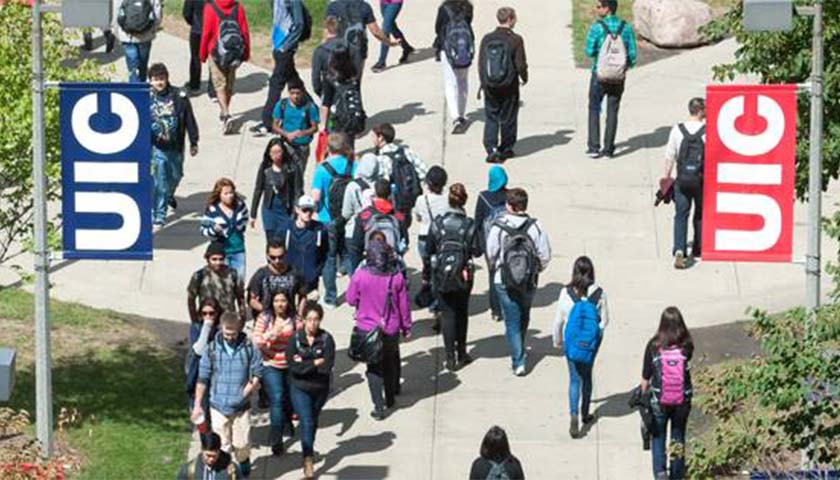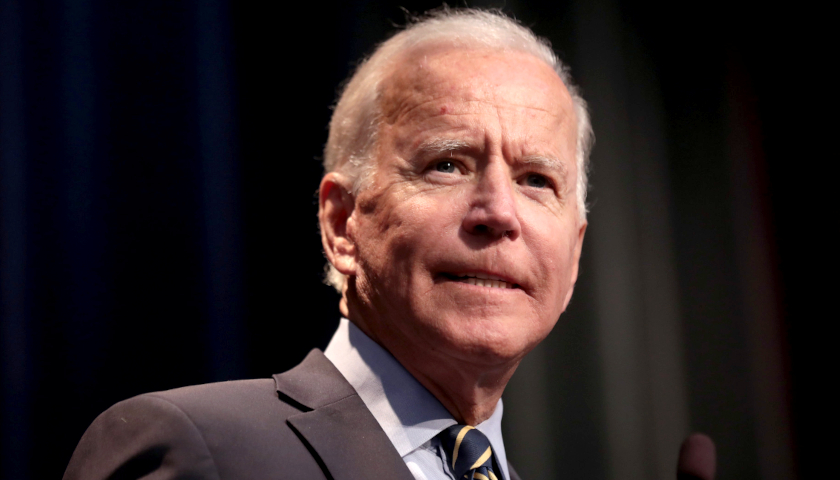by Abigail Streetman ’22
A recent FOIA request filed by Campus Reform revealed that the University of Illinois, Chicago (UIC) spent $80,000 on a Diversity, Equity and Inclusion training created by the Kardia Group, LLC. The agreement was signed in 2018 and included two series of meetings and workshops for the Fall 2018 and Spring 2019 semesters.
The Kardia Group was founded in 2004 and describes themselves as a “leading strategic partner in the transformation of the culture, functionality, and success of the academic endeavor.” Its website lists resources and services ranging from Diversity, Equity and Inclusion to “transformational change for groups.”
According to the contract between UIC and Kardia, the university sent a “proposal to HHMI for an Inclusive Excellence Award” to “build a truly inclusive environment at UIC.”
UIC suggested two programs that would “lead to higher inclusion of transfer, first generation, and URM students in the UIC STEM community and provide a framework for systemic and enduring organizational change towards inclusive excellence.”
UIC reached out to the Kardia Group in relation to one of their programs and specified that one of the issues they were facing was “limitations in faculty knowledge and awareness of culturally-relevant and evidence based pedagogies in the STEM disciplines.” In an effort to correct this, UIC requested the help of Kardia Group’s principal, Dr. Diana Kardia, and Mark Chesler, a professor emeritus of sociology at the University of Michigan, in creating a 2-day Studio and multipart workshops.
Dr. Chesler works for the Kardia Group as a collaborator, and has co-authored some of the books listed on the Group’s resources page, including Challenging Racism in Higher Education: Promoting Justice and Faculty Identities and the Challenge of Diversity: Reflections on Teaching in Higher Education.
The Kardia Group proposed to UIC “three categories of activity to design and present an effective Studio for faculty” at the university. The three categories were “regular meetings with principal investigator team,” “Yearly on-campus project planning meetings,” and “design, presentation and facilitation of a yearly 2-day studio.”
[wonderplugin_pdf src=”https://tennesseestar.com/?attachment_id=276574″ width=”650px” height=”800px” style=”border:0;”]
Participants for the studio were drawn randomly from a pool of faculty and lecturers teaching classes in biology, chemistry, and physics. The goal of this studio was to give participants “awareness and practical strategies for inclusive classrooms” while “challeng[ing]” faculty to consider a range of topics, including “the educational value of diversity and inclusion and how issues of diversity and inclusion typically play out in classrooms and universities.”
Ultimately, UIC paid $29,200 each for two two-day studios, $14,600 for two on-campus project planning meets, and $7,000 for seven meetings at $1,000 each. That total amounted to $80,000.
In June of 2020, nearly years after the contract was signed, UIC created a “Racial Equity Taskforce” that reviewed the schools policies and processes and made suggestions for “improvements.”
As a result of this taskforce, the university concluded that if they “are to be successful, the entire leadership structure has to share responsibility for advancing racial equity.” The Office of Diversity and the Dean of Students office helped create a template for academic units that will help them “develop a plan to advance racial equity.”
The university has also provided a tracking page for monitoring the steps they have taken to reach this goal.
Some of the initiatives that UIC introduced are the creation of a pathway program for Black students in STEM, creation of an Assistant Vice Provost for Equity and Belonging, the launch of an “Implicit bias training,” and expansion of scholarship resources for Balck students.
UIC’s “Equity Dashboard Project” allows members of the public to view the employment, graduation, and enrollment data from students at the school. The information is separated into categories by ethnicity and year, going back to 2016 for enrollment and employment, and 2010 for graduation rates.
The data is also representative of how well the university’s programs are working for the targeted groups. UIC’s statistics show that while the number of Black students enrolled has increased, the percentage has only increased 0.1% in the past 5 years.
The percentage of Latino students however, has risen 4.3% since 2016, and White and Asian enrollment percentages have decreased.
Employment data from UIC shows a slight decline in the overall percentage of Black full-time employees, from 21.7% to 20.8%. The percentage of white employees has also decreased, from 43.5% to 41.4%.
Campus Reform reached out to UIC and its Office of Diversity; this article will be updated accordingly.
– – –
Abigail Streetman is a Florida Campus Correspondent with Campus Reform. She is a second-year student at the University of Florida, majoring in Biology and minoring in Innovation. Abigail is the UF Turning Point USA secretary, Gainesville Activism Hub president, and a member of College Republicans, Network of Enlightened Women, and Young Americans for Liberty.
Photo “Students Enjoying a Nice Day On Campus Between Classes” by University of Illinois Chicago.








